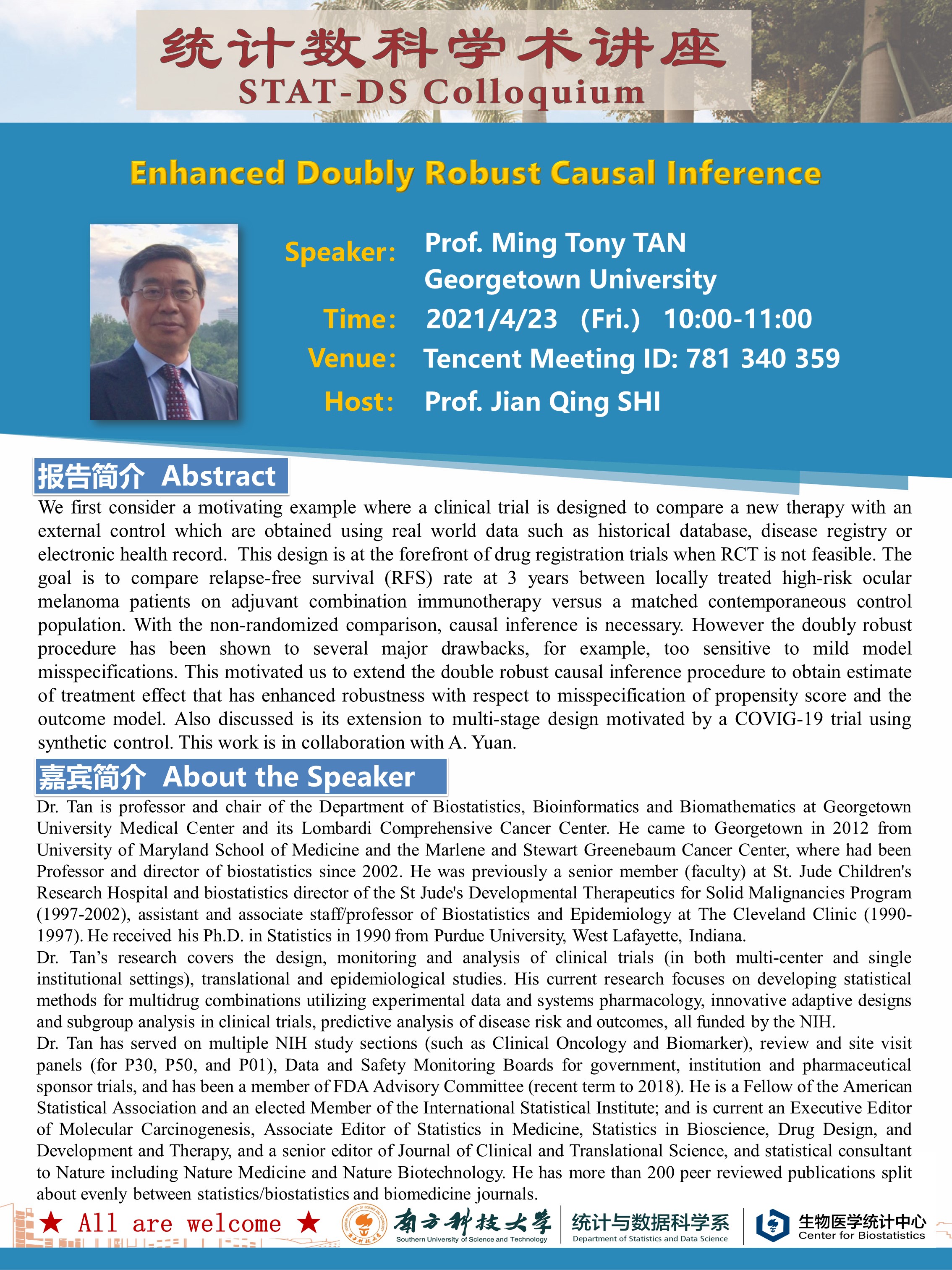报告简介 Abstract
We first consider a motivating example where a clinical trial is designed to compare a new therapy with an external control which are obtained using real world data such as historical database, disease registry or electronic health record. This design is at the forefront of drug registration trials when RCT is not feasible. The goal is to compare relapse-free survival (RFS) rate at 3 years between locally treated high-risk ocular melanoma patients on adjuvant combination immunotherapy versus a matched contemporaneous control population. With the non-randomized comparison, causal inference is necessary. However the doubly robust procedure has been shown to several major drawbacks, for example, too sensitive to mild model misspecifications. This motivated us to extend the double robust causal inference procedure to obtain estimate of treatment effect that has enhanced robustness with respect to misspecification of propensity score and the outcome model. Also discussed is its extension to multi-stage design motivated by a COVIG-19 trial using synthetic control. This work is in collaboration with A. Yuan.
嘉宾简介 About the Speaker
Dr. Tan is professor and chair of the Department of Biostatistics, Bioinformatics and Biomathematics at Georgetown University Medical Center and its Lombardi Comprehensive Cancer Center. He came to Georgetown in 2012 from University of Maryland School of Medicine and the Marlene and Stewart Greenebaum Cancer Center, where had been Professor and director of biostatistics since 2002. He was previously a senior member (faculty) at St. Jude Children's Research Hospital and biostatistics director of the St Jude's Developmental Therapeutics for Solid Malignancies Program (1997-2002), assistant and associate staff/professor of Biostatistics and Epidemiology at The Cleveland Clinic (1990-1997). He received his Ph.D. in Statistics in 1990 from Purdue University, West Lafayette, Indiana.
Dr. Tan’s research covers the design, monitoring and analysis of clinical trials (in both multi-center and single institutional settings), translational and epidemiological studies. His current research focuses on developing statistical methods for multidrug combinations utilizing experimental data and systems pharmacology, innovative adaptive designs and subgroup analysis in clinical trials, predictive analysis of disease risk and outcomes, all funded by the NIH.
Dr. Tan has served on multiple NIH study sections (such as Clinical Oncology and Biomarker), review and site visit panels (for P30, P50, and P01), Data and Safety Monitoring Boards for government, institution and pharmaceutical sponsor trials, and has been a member of FDA Advisory Committee (recent term to 2018). He is a Fellow of the American Statistical Association and an elected Member of the International Statistical Institute; and is current an Executive Editor of Molecular Carcinogenesis, Associate Editor of Statistics in Medicine, Statistics in Bioscience, Drug Design, and Development and Therapy, and a senior editor of Journal of Clinical and Translational Science, and statistical consultant to Nature including Nature Medicine and Nature Biotechnology. He has more than 200 peer reviewed publications split about evenly between statistics/biostatistics and biomedicine journals.
讲座海报Poster




